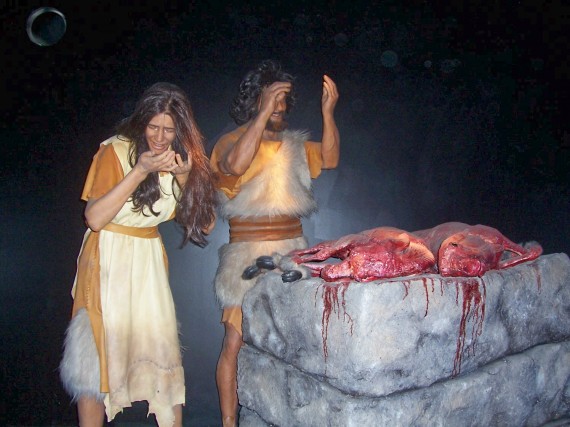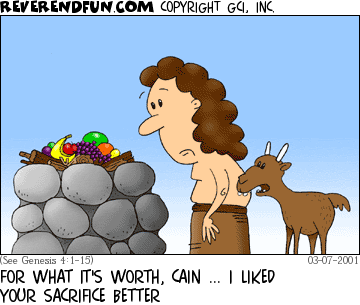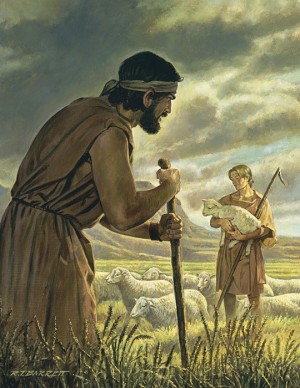Have you ever wondered why Cain brought an offering of fruit to God in Genesis 4? Have you wondered what was wrong with Cain’s offering so that God did not accept it?
In Episode 53 of the One Verse Podcast, we look at Genesis 4:1-3 for answers to these questions.
The Text of Genesis 4:1-3
Now Adam knew Eve his wife, and she conceived and bore Cain, and said, “I have acquired a man from the Lord.” Then she bore again, this time his brother Abel. Now Abel was a keeper of sheep, but Cain was a tiller of the ground. And in the process of time it came to pass that Cain brought an offering of the fruit of the ground to the Lord.

In this discussion of Genesis 4:1-3 we look at:
- The birth of Cain and Abel shows that Adam and Eve were still serving as the Image of God
- The story that Cain and Abel grew up hearing
- The reason Cain brought an offering of fruit to God
Resources:
Downloadable Podcast Resources
Those who are part of my online discipleship group may download the MP3 audio file for this podcast and view the podcast transcript below.
You must join a discipleship group or login to download the MP3 and view the transcript.
Thanks for visiting this page ... but this page is for Discipleship Group members.
If you are already part of a Faith, Hope, or Love Discipleship Group,
Login here.
If you are part of the free "Grace" Discipleship group, you will need to
Upgrade your Membership to one of the paid groups.
If you are not part of any group, you may learn about the various groups and their benefits here:
Join Us Today.

Do you like learning about the Bible online?
Do you like learning about Scripture and theology through my podcast? If so, then you will also love my online courses. They all have MP3 audio downloads, PDF transcripts, quizzes, and a comment section for questions and interaction with other students.
If you want to deepen your relationship with God and better understand Scripture, take one (or all) of these courses. They are great for personal study or for a small group Bible study.
You can see the list of available courses here, and if you join the Discipleship group, you can take all the courses at no additional cost. Go here to learn more and join now.


![[#53] Genesis 4:1-3 – Raising Cain](https://redeeminggod.com/wp-content/uploads/2016/10/cain-150x150.jpg)
![[#49] Genesis 3:20-21 – The Emperor Has No Clothes](https://redeeminggod.com/wp-content/uploads/2016/09/sacrifice-Genesis-3-21-570x427-150x150.jpg)





 How can a God who says "Love your enemies" (Matthew 5:44) be the same God who instructs His people in the Old Testament to kill their enemies?
How can a God who says "Love your enemies" (Matthew 5:44) be the same God who instructs His people in the Old Testament to kill their enemies?




 God gently rebukes Cain and tells him he is already accepted and loved, that nothing is required. All God wants is for Cain to live well, to do what is right. If he doesn’t do what is right, rather than being the savior of his family, Cain will fall into the same trap that his parents had fallen into, and will become prey to sin. In fact, God warns Cain that sin is already crouching at Cain’s door, seeking to devour him.
God gently rebukes Cain and tells him he is already accepted and loved, that nothing is required. All God wants is for Cain to live well, to do what is right. If he doesn’t do what is right, rather than being the savior of his family, Cain will fall into the same trap that his parents had fallen into, and will become prey to sin. In fact, God warns Cain that sin is already crouching at Cain’s door, seeking to devour him. 